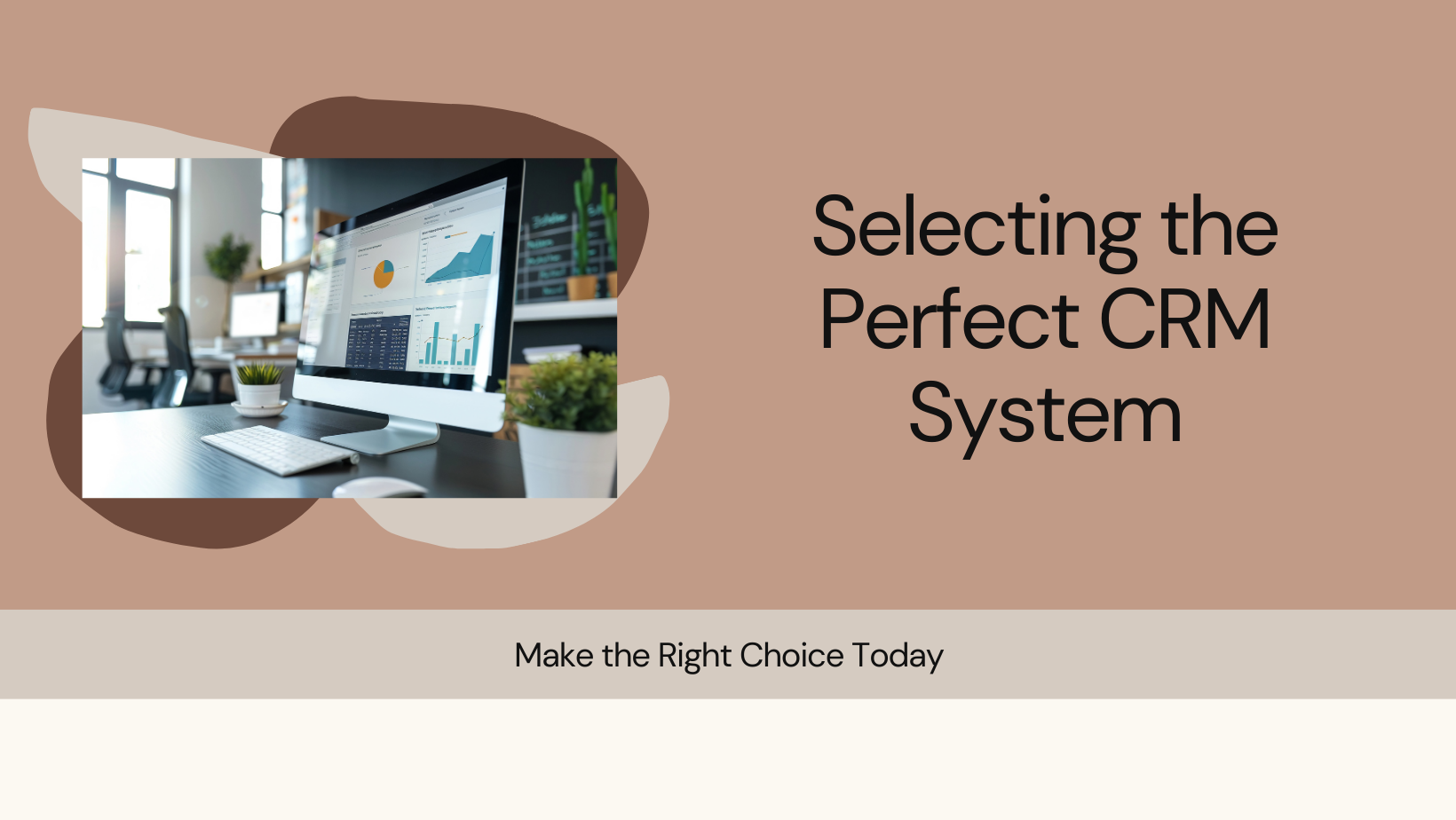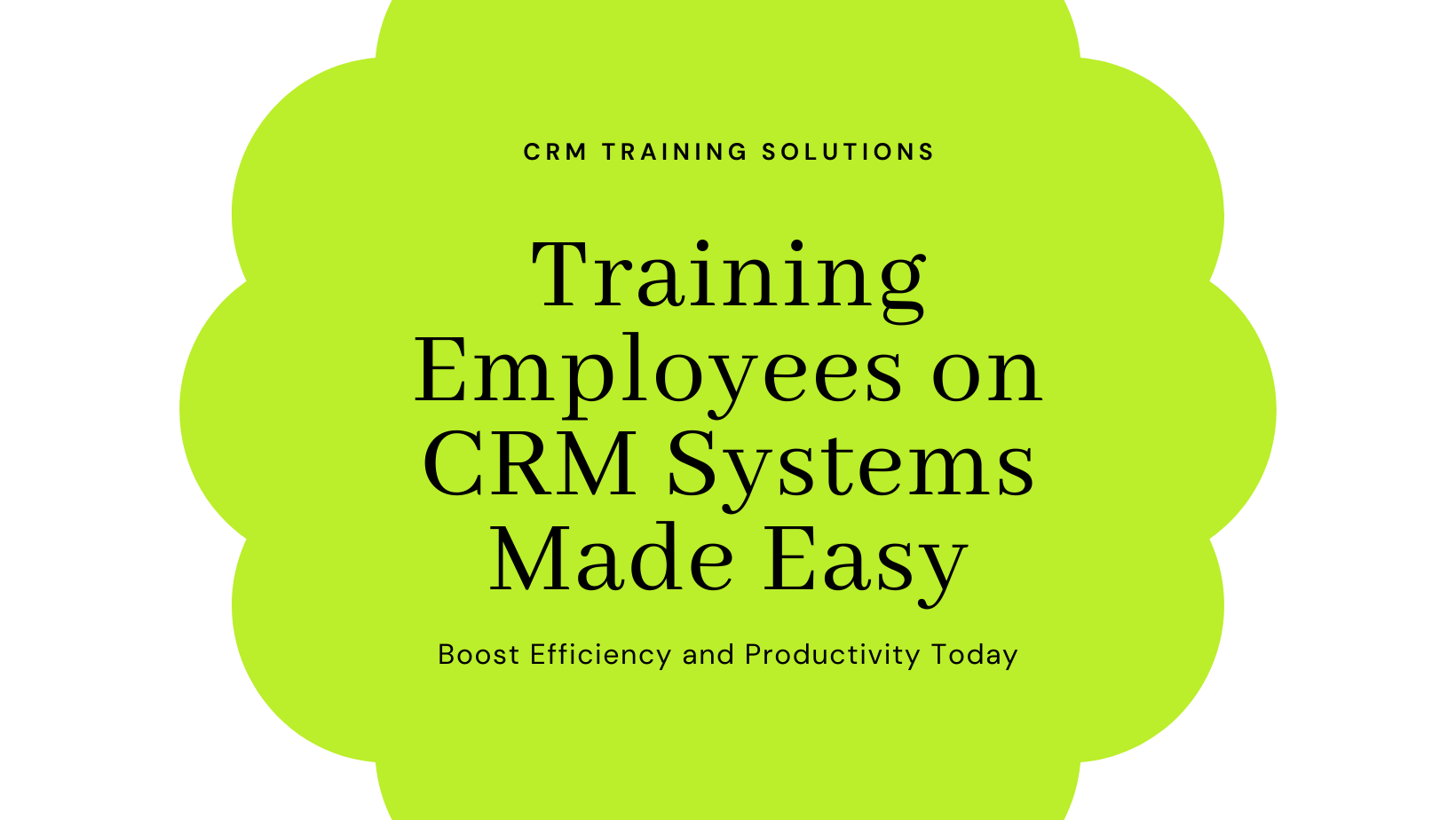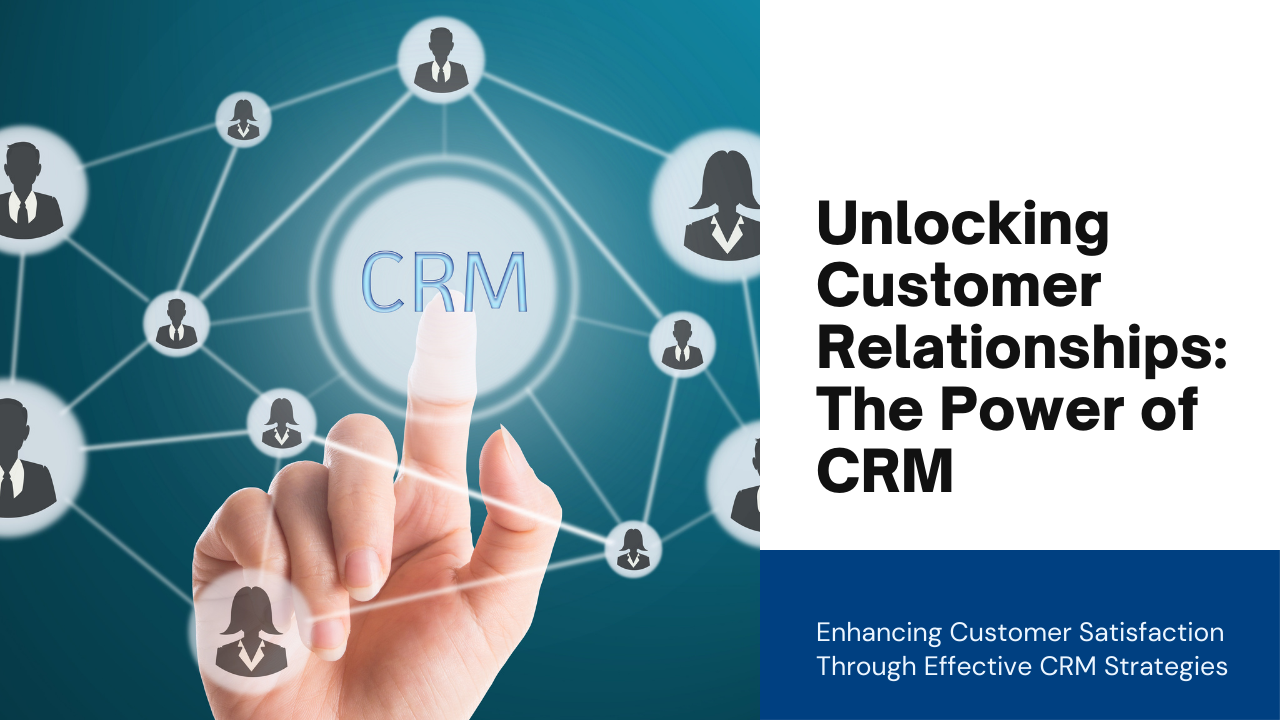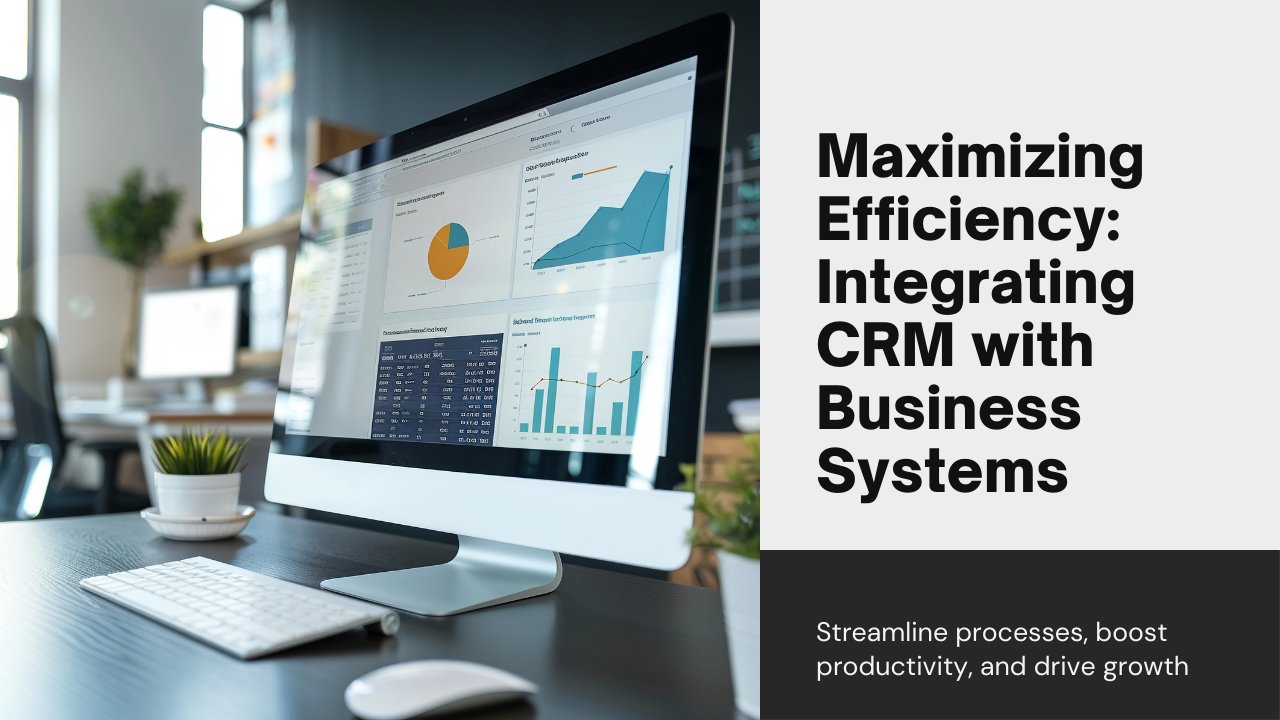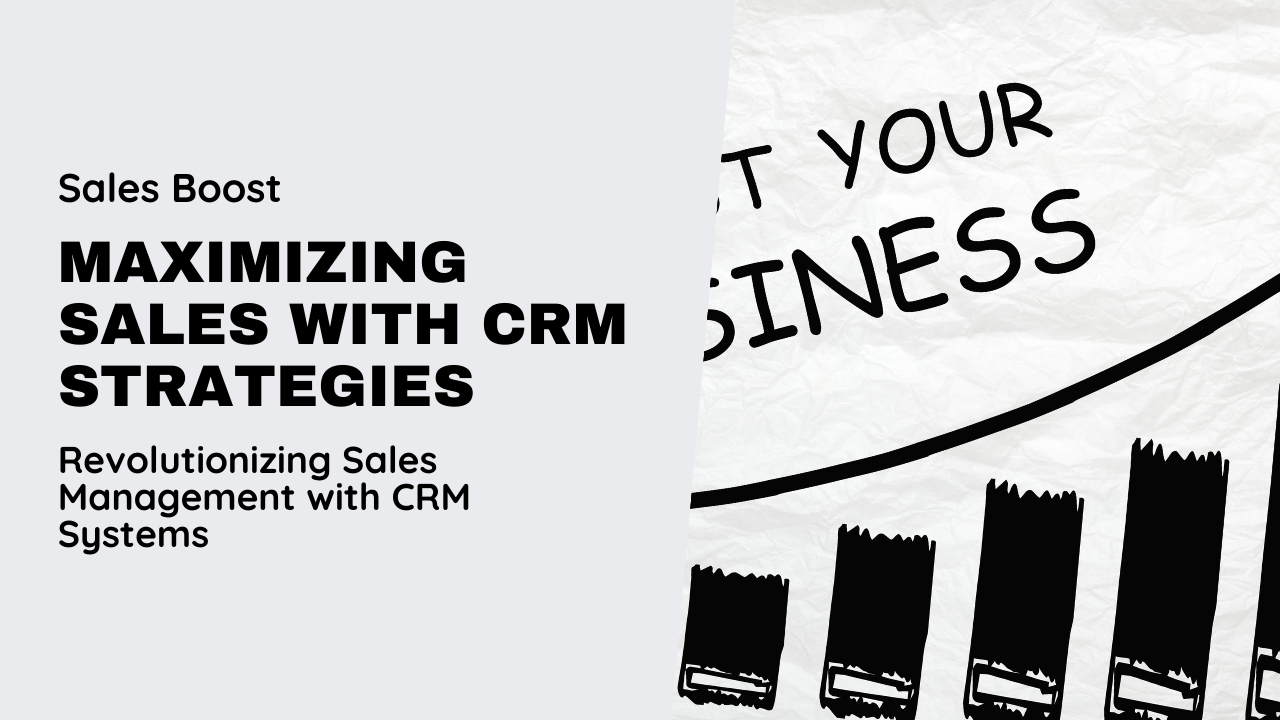Choosing the right Customer Relationship Management (CRM) system is crucial for businesses aiming to enhance customer relationships, streamline operations, and drive growth. With numerous CRM solutions available in the market, selecting the best-fit system requires a thorough evaluation of business requirements, features, deployment options, integration capabilities, and scalability considerations. This blog provides a comprehensive guide to help businesses navigate the process of selecting the ideal CRM system tailored to their unique needs.
Assessing Business Needs and Objectives
1. Define CRM Goals and Objectives
Before evaluating CRM systems, articulate clear goals and objectives aligned with business strategies. Identify specific challenges or pain points that a CRM solution should address, such as improving customer engagement, optimizing sales processes, enhancing marketing effectiveness, or streamlining customer support.
2. Understand User Requirements
Gather input from key stakeholders, including sales teams, marketing professionals, customer service representatives, and IT administrators. Identify user preferences, functionality requirements, and desired CRM capabilities to ensure widespread adoption and maximize ROI.
Evaluating Key CRM Features and Functionalities
1. Core CRM Capabilities
Evaluate essential CRM functionalities such as contact management, lead tracking, opportunity management, and pipeline visibility. Ensure the CRM system aligns with your specific industry needs and supports customization to accommodate unique business workflows.
2. Sales and Marketing Automation
Assess automation capabilities for sales processes (e.g., lead scoring, quote management, sales forecasting) and marketing campaigns (e.g., email marketing, campaign management, lead nurturing). Integration with marketing automation tools enhances campaign effectiveness and alignment between sales and marketing efforts.
3. Customer Service and Support
Consider CRM features for managing customer service interactions, support ticketing, case management, and service-level agreements (SLAs). Robust customer service capabilities ensure timely resolution of customer issues and foster positive customer experiences.
4. Analytics and Reporting
Analyze CRM reporting capabilities for generating custom reports, dashboards, and analytics insights. Advanced analytics functionalities enable data-driven decision-making, performance monitoring, and ROI measurement across sales, marketing, and customer service functions.
Deployment Options: Cloud-Based vs. On-Premises CRM
1. Cloud-Based CRM Solutions
Cloud-based CRM systems offer scalability, flexibility, and accessibility advantages for businesses of all sizes. Cloud deployment ensures real-time data access, seamless updates, and remote workforce collaboration, with reduced upfront costs and minimal IT infrastructure requirements.
2. On-Premises CRM Solutions
On-premises CRM solutions provide greater control over data security and customization but require substantial upfront investments in hardware, software licenses, and IT resources. Consider on-premises deployment for organizations with strict data privacy requirements or regulatory compliance needs.
Integration Capabilities and Customization Options
1. Integration with Existing Systems
Evaluate CRM integration capabilities with existing business applications such as ERP systems, marketing automation platforms, e-commerce solutions, and productivity tools. Seamless integration ensures data synchronization, workflow automation, and holistic customer insights across enterprise systems.
2. Customization and Scalability
Assess CRM customization options to tailor workflows, user interfaces, and data fields to align with specific business processes and industry requirements. Scalable CRM solutions accommodate business growth, evolving customer needs, and expanding user bases without compromising performance or usability.
Considerations for Vendor Selection and Support
1. Vendor Reputation and Reliability
Research CRM vendors based on industry reputation, customer reviews, and vendor stability. Choose a trusted CRM provider with a proven track record of successful implementations, ongoing support services, and responsiveness to customer needs.
2. Training and User Support
Prioritize CRM vendors that offer comprehensive training programs, user documentation, and technical support to facilitate smooth system adoption and user proficiency. Access to knowledgeable support staff and online resources enhances user satisfaction and minimizes operational disruptions.
Conclusion: Making the Right CRM Investment
Selecting the right CRM system involves strategic planning, thorough evaluation, and alignment with business objectives to drive organizational success. By understanding business needs, evaluating key features, assessing deployment options, and prioritizing integration capabilities, businesses can make informed decisions and leverage CRM technology to enhance customer relationships, optimize operations, and achieve sustainable growth.
Investing in a tailored CRM solution isn’t just about adopting technology; it’s about empowering teams, optimizing processes, and delivering exceptional customer experiences that differentiate your business in a competitive marketplace.
